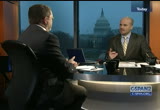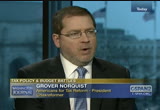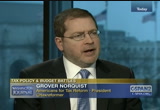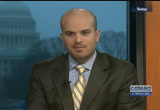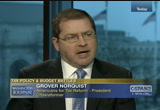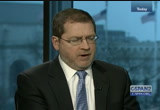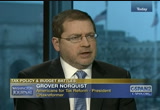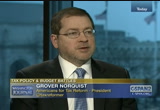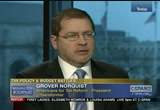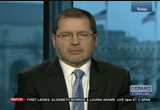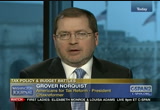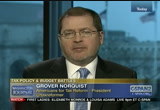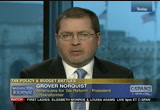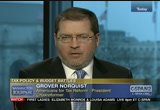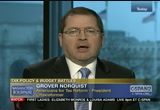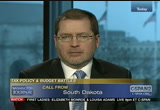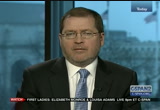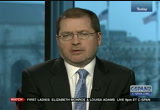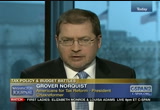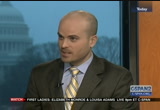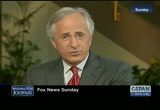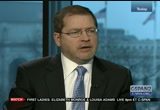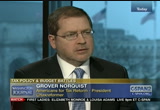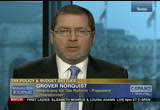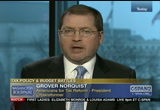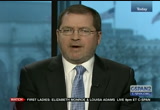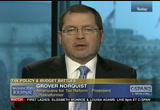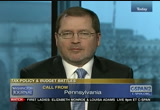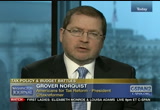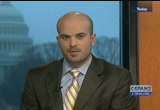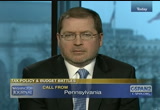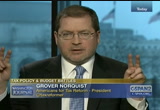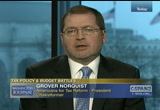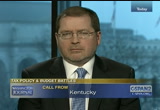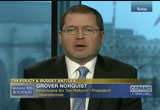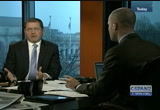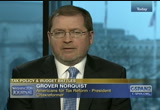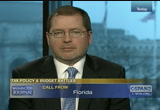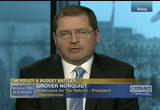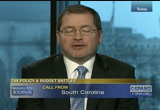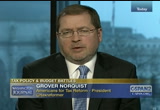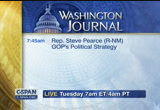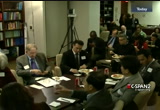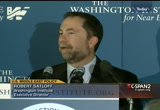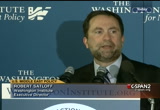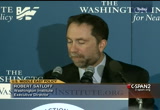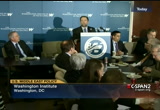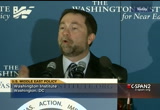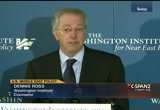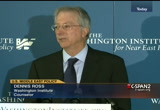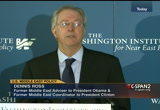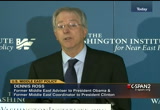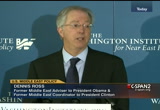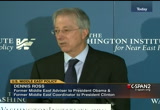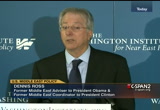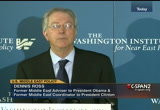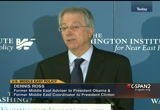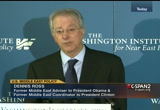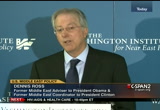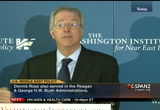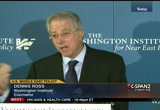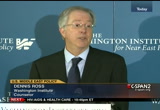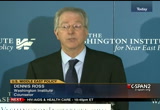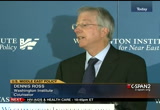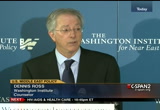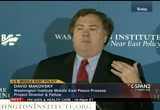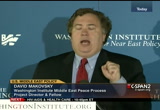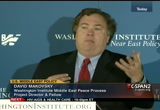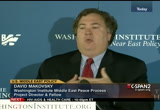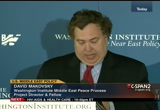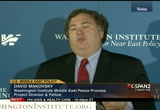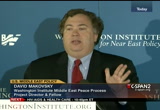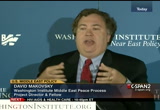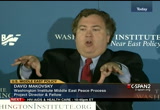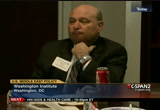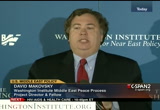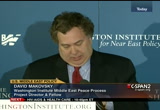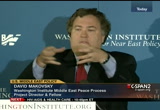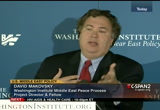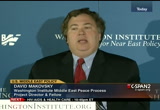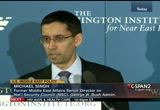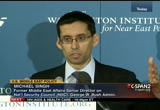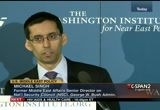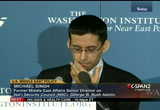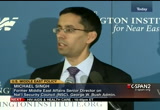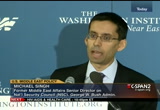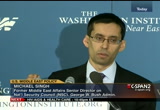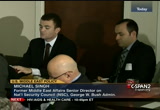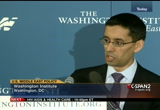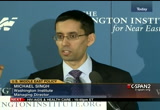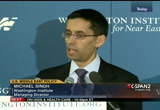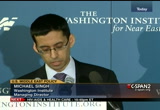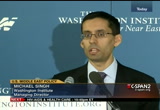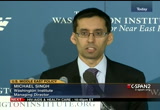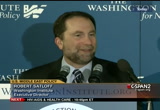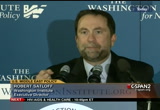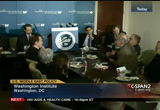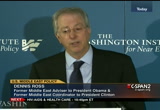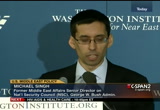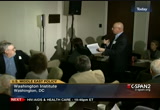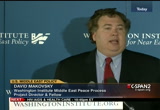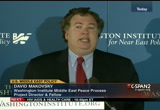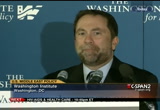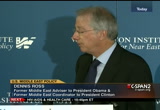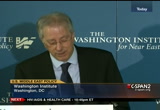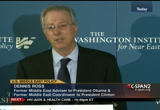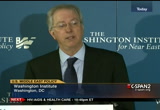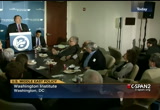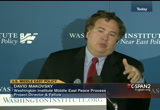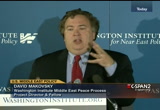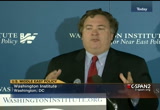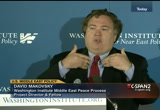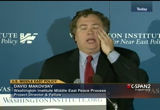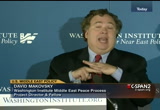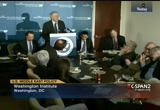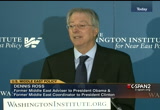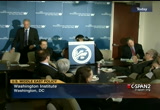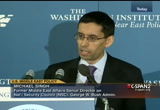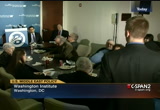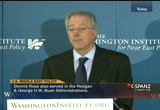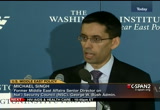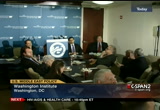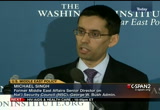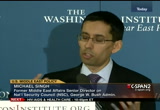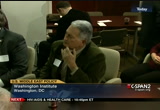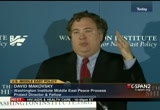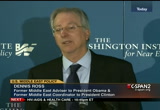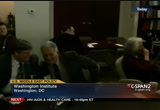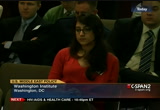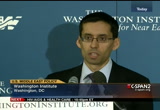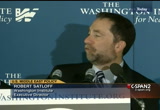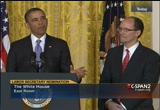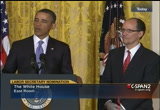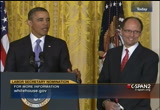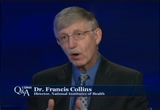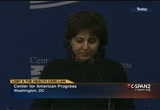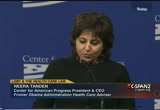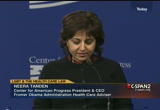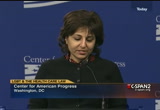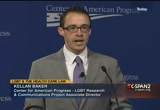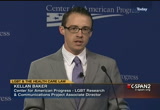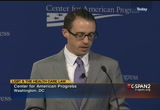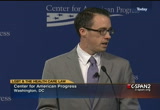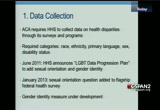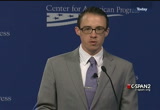tv Tonight From Washington CSPAN March 18, 2013 8:30pm-11:00pm EDT
8:30 pm
we spoke to grover norquist of americans for tax reform on this morning's washington journal. here's a portion of the conversation. >> host: welcome back to the "washington journal" and over -- grover norquist joins us. i want to get your thoughts on the news of the growth and opportunity project report out from the republican national committee, the chairman of the republican national committee is having a press conference that started a few minutes ago at the national press club, talking about changes that the party needs to make in terms of outreach, changes to how to dominate a presidential nominee. just on what you've heard so
8:31 pm
far? >> guest: first of all is important to do a postmortem on an unsuccessful campaign. republicans at every recent to believe that -- would capture the senate and when the white house as well and it didn't happen. now at the same time republicans had 30 governors and democrats have 20 and at the state level more republican state legislators than democrats. there are 25 states where republicans have united control in both houses and only 12 states, less than half where the democrats have full control. half the country's population lives in republican-controlled states and a quarter of the country's population lives in democratically controlled states. what's interesting is you have to take a look at what went wrong with five senate races and then recognize what went right that the republicans want again control of the house and if you
8:32 pm
wanted in 12 you would probably hold it for 10 years and why republicans do so well at the state level. >> host: is there a difference between the republicans house outlook that look in the state outlook? >> guest: there certainly has been in the last several years. part of that is governors are able to put forward holistic plants that make sense and make radical change. in washington d.c. we have had this gridlock where good ideas can go to the senate and the dire the president can veto them. you even get votes on good ideas we are now finally getting the democrats in the senate to write the budget which for 1418 days, they never wrote a budget. how do you campaign against democrats in the senate if they don't even write down what they are for? so there are differences in how you structure it. i think is a lot to be learned
8:33 pm
from republican successes with governors like walker and wisconsin have made dramatic changes on the cost of government and government run pension, unionized government workforce and bobby jindal with school choice. he is planning to abolish the corporate individual income tax moving in a very different direction the national democrats want to and winning elections with that approach. there is a lot to be learned both by the failure of the romney campaign in the senate races in the success of the republicans have had at the state level. >> host: we are taking your calls with grover norquist with americans for tax reform. our farmland or open democrats (202)585-3880 and republicans (202)585-3881. grover norquist known as an expert on some of these budget issues. you bring up the senate budget that we saw from budget
8:34 pm
chairwoman patty murray last week. talk about that and how you think it compares to paul ryan's budget? >> there are two major differences and they certainly going different directions. paul ryan's budget balances in 10 years and is not raise taxes and patty murray's budget never balances and raises taxes $1.5 trillion over the next decade. what the democrats and patty murray are saying in addition to the 600 million-dollar tax increase that obama won in january and they trillion dollars of obamacare tax increases that most americans are unaware of and they don't know that they are getting and obama never talks about the trillion dollars in tax increases starting this year for obamacare. 1.6 and 1.5 is a 3 trillion-dollar tax increase over the next decade if the democratic budget passes and a never balances because they turn round and spend another --
8:35 pm
hundreds of millions of dollars more on stimulus programs as well as other stuff. they do more spending with more taxes but with the brian budget does is very interesting for the republican future. it reforms entitlement, protecting everybody over 55 for many changes and makes changes so that younger people will still have these programs. it takes all the welfare programs, 185 different welfare programs and block grants the largest and most expensive ones just as clinton did with aid to families with children. we have this reform of entitlement and reform of these welfare programs and tax reform taking the top rate on individuals to 25% and the bottom rate to 10%. now we go from 10 up to 44 and the corporate rate which is 35% right now.
8:36 pm
the average in europe is 25 so we compete internationally. we tax our companies and our manufacturing companies more harshly than they do theirs. we want to take that rate to 25. i would rather be better than europe and the canadians are at 17%. i preferred the canadian rate than the european average so the republicans and democrats in their two budgets really show who they are. there is also a third budget which is the congressional budget which is more liberal democrats and they do massive new taxes on top of the ones i discussed. you have a sense of there are some democrats who want to go even further into big government and patty than patty murray and president obama. >> host: americans for tax reform is best known as the taxpayer protection pledge and here is that pledge right here. i blanked pledge to the
8:37 pm
taxpayers of the state of blank and the american people that i will -- that is the pledge that americans for tax reform passed passed -- asks federal and state to sign. this idea of closing the tax loophole comes in and how that fits into your pledge. closing loopholes is something that paul ryan spoke of in his budget. >> guest: certainly and completely consistent. you can -- by saying no net increase but it spells it out. president reagan endorsed it in 86 as well.
8:38 pm
this is part of passing the tax reform act of 86, americans for tax reform was set up to make sure that happened in the best way to protect the tax reform was to make sure they could never be turned into a trojan horse for tax increases. about 100 publicans, congressman and senators sign this pledge saying future tax reform would never allow tax reform to hide a tax increase and peer at ickley politicians in tax reform is that what they mean is they want to raise tax reform. there are two ways, raise the rates or broaden the base without bringing the rates down. no raising the rates and if you want to get reductions in credit that's great. bring the rates down dollar for dollar. that is what ryan does in the ryan plan is perfectly consistent. >> host: let's bring in chris from florida on the republican
8:39 pm
line. good morning chris. you were on with grover norquist. >> caller: thank you. thank you for c-span. mr. norquist, i think there is a big problem. perception is everything when it comes to marketing and it's the perception that the democrats are able to get across because the democrats, they know their audience and they know who their pandering to. and they treat them like stupid children. i will give you an example. you remember when the bush tax cuts first came out and tom daschle and dick gephardt were the minority leaders. they didn't have anything. they didn't have the house and they didn't have the senate or the white house. yet they came out with this ridiculous show for the press with visual aids. they had to "meet the press" outside because they had a
8:40 pm
brand-new lexus and they had a rusty muffler. that is what he is going to get, the rich guy. this is all you are getting and basically they said there is nothing in it for you if you are middle class or poor. this is only for the rich and we know that is not true. most people bought it and in fact to this day, most republicans i talk to its unbelievable. forget about the truth. is the perception of the truth. it's amazing. terms like gridlock, a came from them. the last congress was the worst congress ever because they got less done. not quality, quantity. >> guest: very good points. look, the democrats attacked the reagan tax cuts and said they would be awful and unfair and of course we got the longest movement in american history and they attacked the 2001/2003 tax
8:41 pm
cuts and said they were unfair. yet president obama just had acknowledged january 1 he saved 85% of the bush tax cuts permanent. 85% and what that means is even by obama's definition 85% of the tax cut went to middle income americans. as a result he made them permanent. it was a tremendous concession and they had to admit for 12 years they were lying about the bush tax cuts but we will take it. 85% of progress is progress and now what we have is the tax rate and the tax system and the federal government comes into being temporary, we opt every two in five years. years. it's not permit so president obama and the democrats want to raise taxes on many americans. they have to look them in the
8:42 pm
eye and passed them through the democratic senate. the republican house would have to agree. the republican house is not going to allow them to raise taxes on american people and that is how you force a conversation about reform. the reason why there is been no reform during the obama years and no entitlement reform or welfare reform is that they raise taxes and spend more money when you stop them from having the ability to raise taxes than they have to reform government to decide how to allocate the resources and how to prioritize them. that's the beginning of getting reform and you're quite right that republicans need to be better at walking through with everybody why they are doing things and what they are up to. and speaking directly to people. you can't always expect cbs to articulate the republican position as accurately as we might like. >> host: smiley 22 rights and
8:43 pm
on twitter, with the trillion dollars and spending cuts in the last three years when will we see the economy take off mr. mr. norquist? >> guest: okay, we haven't had trillion dollars spending cuts that we had an agreement by the president of the united states forced on them by the republicans to reduce spending over the next decade by a trillion dollars, so 100 million a year. they haven't started yet and they're just beginning to kick in. this a quest or is an additional $1.2 trillion over the decades to what the republicans want in the state battle we had in 2011, the budget control act was obama needs the debt ceiling to be increased because we spent so much money and republican said okay, we will raise the debt ceiling so the country doesn't default but only if you agree to a dollar for dollar reduction in spending over the next decade. that $2.5 trillion in spending
8:44 pm
restraints, not real cuts, spending, less than obama had hoped but in washington that is called a cut. if you want 10 of something and you only got eight of something, you walked away with eight but so that was the $2.5 trillion spending reduction over the next decade. it hasn't happened yet. we have several problems. the trillion dollars that obama obama -- obamacare tax increases in this decade have begun to hit now. oddly enough the democrats in the house and senate decided to put the tax increases, both of them after the 2012 election so everybody voted and now the tax increase has hit. this is not helpful for the economy and they think it's going to be unpleasant. >> host: up next from watertown south dakota on the democratic line.
8:45 pm
good morning, ron. >> caller: good morning and thanks for taking my call. i listened to you for a long time and i find very little that i don't disagree with. however, i know a little bit about the tax code and there are many things in the tax code especially business exemptions, that are very vague and there is a lot of companies and a lot of businesses that don't pay any taxes. what they do is they write their taxes off. they declare their business expense which in fact it isn't. in fact, for example if i was going to orlando, florida and i was going there to check the price of wingnuts however i stopped at disneyland, theoretically i could write my trip off as a business expense but in reality would not be a business expense. i think if you're going to run a
8:46 pm
free enterprise and i know a little bit about the economy too. if you're going to run a free enterprise, taxes have to be fair. when i listen to the republicans what i hear from the republicans is, we absolutely cannot raise taxes on wealthy people or can we cut any government programs that affects wealthy people but for middle-class people we can raise the taxes a little bit and cut a lot of programs that affect the middle class. i would like your response to that. >> guest: two things. we are largely in agreement on the importance of getting a tax system for less intrusive to the american people. you mentioned a lot of deductions and credits are problematic. maybe not necessary not helpful. president obama has put corporate welfare tax credits and for all sorts of wind power and ethanol in things and things
8:47 pm
like that because he wants to benefit certain corporations at the expense of all consumers. i think the special interest tax credit that we are put in and max baucus has a collection of former employees who lobbied for getting these and in their boss works for the finance committee and the budget stuff was stuck in with the fiscal cliff. you have to wonder why corporate welfare was handed out by the baucus' former staff people. this is a real challenge and it's -- [inaudible] let's reduce, eliminate those sorts of actions and credits and reduce marginal tax rates. it's not a tax increase. when you mentioned taxing rich people, every time the liberals want to raise taxes, they claim
8:48 pm
they are taxing the rich but of course they end up taxing everybody. you may remember the personal income taxes put in, 1913 top rate 7% and it had to make a lemon million dollars to pay the 7% rate on income over $11 million in today ,-com,-com ma not just a handful in taxes but half of americans pay the federal income tax. that was a tax on rich people and it became a tax on almost everybody. the tax to pay for the spanish-american war and the 3% federal excise tax on your phone on long distance in ninth team team -- make 1898. only rich people have phones and they were $5000 apiece back then and only rich people made long-distance phonecalls. not too long after that everybody had a phone and everybody make long-distance phonecalls and we are all payin,
8:49 pm
high-income people all pay a tax the alternative minimum tax to tax 155 people who ted kennedy thought were not paying their their fair share and today 4 million american families get hit by that. if we had won the fight against the bomb on the fiscal cliff and made a permanent it would have been 30 million people in addition to those 47. they say we tax 155 peel when we end up taxing 30 million people. keep an eye on that cooldown taxation. it's the way the liberals introduced taxes but we are not taxing you. we are taxing the other guy in the next thing you know they are taxing you too. >> host: the next possible budget it should come down the road is this possible grand bargain being talked about on capitol hill. senator bob corker republican from tennessee was on "fox news sunday" and address the issue of a possible deal with the democrats on entitlement.
8:50 pm
let's take a listen. >> again i think there are by the way is a chance on a deal. i know the president is saying the right things and we have an opportunity over the next 45 months. i think we will know when the president is serious by virtue of a process that is set up where he is actually the table or whether he has to designate and whether he begins to say publicly to the american people and to all americans that he understands that americans are only paying one third of the cost of medicare. that has to change for the program to be here down the road but look chris, i think republicans if they saw as true entitlement reform would be glad to look at tax reform that generates additional revenues and that doesn't mean increasing rates. that means closing loopholes and it also means arranging our tax system so that we have economic growth. >> host: your take on senator corker's situation?
8:51 pm
>> guest: well, the democrats for the last few years now have been trying to say oh we are for a grand bargain. we are for simpson-bowles. simpson-bowles was a handful of republicans -- though only a handful, the only real numbers there are other than the page numbers worthy desire and demand that they take the historic revenue, amount of taxes making the percentage gdp up to 21%. that was their opening bid and then they were willing to talk about other stuff. first they wanted a to 5 trillion on tax relief and then they cut a trillion dollars in tax increases hidden inside something they call tax reform. there is a 6 trillion-dollar tax increase and then they were rather fuzzy about what spending cuts they might want. we have seen the president's walk into the negotiations last fall and there were no spending cuts. he had tax increases because there were automatic tax hikes
8:52 pm
which he wanted to take affected no tax increases. the idea that the democratic party which created this with runaway entitlement has never reformed them secretly desires to reform them. this is what they really want to do. it's like mark twain used to observe, americans always want to think that people go to heaven and play the harp of the time but when they live here and the harp is around nobody plays the harp. why would you think that someone would say really want to do that i want to do it all the time after i'm dead. the democrats want to fix entitlements but after they are out of office. democrats out of office talk a lot about reforming entitlements and democrats in office, they increased entitlements. obama cares another big unfunded entitlement. after tax increases they're still not enough to pay for it. the idea that there is this
8:53 pm
fiction that secretly they want to do that strikes me as odd and senator corker was burned when last fall he thought he was negotiating with the white house and they took tax increases and no spending restraints in no entitlement reform at all. having a conversation about how much you paid for a pink unicorn is pink unicorns existed strikes me as an odd way to spend one's time. there are no pink unicorns and there's not proper price for a pink unicorn and they are not interested in real entitlement reform that saves money and if they did they would be for the ryan plan. the ryan plan. >> host: i want to ask about sequestration. sequestration now last week this article from atlanta caught my eye. quote p. listen to for republican four republican senators who were on c-span a lot. explain that. >> guest: interestingly the president of the united states, president obama started shortly
8:54 pm
after the election in a very strong position. he had just won re-election and he had a democratic senate. he didn't own the capital because republicans had the house of representatives but the next thing was the fiscal cliff. the fiscal cliff was an automatic 5 trillion-dollar tax increase unless the president and the house and senate passed an alternative. he had all the power. he said i want to keep 1 trillion of that, i want want to keep two the republicans and democrats in the house could not stop that. the republicans in the house several times said we vote to and everything in the democrats in the senate said but we don't so there'll be a tax increase in the presence said okay i want $600 billion. he took his pound of flesh and he got that anthony made all of 85%, all the remaining bush tax cuts permanent so 85% of the
8:55 pm
money that he could have taken off the table and given to his friends remained with the american people. as a result, he now gave up all of his bargaining positions. what if instead he said guys, we are going to extend the tax cuts for most people for a year. and a year from now he had said well i can only extend part of it for another year. he would have had, every time he gets mad at the republicans he says what he do that i'm going to have to make you pay for it by pulling back the tax cut when we extend it next year or you can do it every two years but instead he gave that all away. why would he give up his bargaining position, his upper hand on taxes? he believed he also had the upper hand on sequestration. sequestration of the aromatic spending cuts. they're the opposite of the fiscal cliff.
8:56 pm
the fiscal cliff was if nothing happens taxes go up in the republicans can't stop it. there is no vote that can stop it. sequestration is, unless the house-senate in house-senate in the presence of an alternative it's a $1.2 trillion spending reduction from obama's wish list. so it's automatic. the republicans say we don't want to stop it and it doesn't stop at the democrats keep saying what you raise taxes instead? the answer is no. what obama thought was going to happen, because he saw a handful of republicans on shows saying if any of the defense spending increases are not carried out, when he missed was they were recycling the same four or five republican politicians and that is certainly not where the country is, not with the moderate republican party and not where the republicans in the house and the senate art. there are guys on the spending
8:57 pm
committee that would like to spend money and that's understandable but at the end of the day, we should probably figure out how to get the pentagon more flexibility that they need for the same amount of dollars promised the sequester as the rest of the government does and so the president misjudged, believing that republicans would panic during negotiations on the fiscal cliff. he kept waiting for the republicans to put the sequester on the table in order to give it away. that never happened. what the republicans did was -- and president obama thought the republicans were retreating. oh god i'm going to get my tax increase down the republicans are about to give up on the sequester. there are conservatives watching from afar saying we are giving up here the republicans were moving the sequester from our side from the disaster that that the fiscal cliff in the present had all the power.
8:58 pm
the fiscal cliff happen and we move forward and now the republicans have all the -- and the discussion. >> host: we are talking with grover norquist the present for americans for tax reform, twitter handle @tax reform or if you want to catch them on twitter. >> guest: talk to me directly @grover norquist. @grover norquist will let you know how my children are behaving that day as well as with the tax policy is. >> host: mark on the republican line. good morning mark. >> caller: good morning. you must be tired of everyone criticizing the media. my question is, i'm 82 and i've been doing my own taxes for a number of years. each year they become more and more complicated. i am finding that it takes me
8:59 pm
not ours but days and days and days to complete my taxes and half the time i don't think they are right anyhow. and the amount of paper involved in the amount of requirements on companies that they have to report, it's such a nightmare and when you think about the number of hours and days across the country that it takes in filling out these forms, you need to add that to your reform agenda. >> guest: i agree completely. that is one of the problems with the tax code, the cost of the tax code that we don't talk about. it's easy to talk about how many dollars the government took and brought to washington d.c.. those are numbers the government looks at. less easy to quantify although there estimates to give you pretty at good idea of the minimum amount, it is many many
9:00 pm
man-hours and you could build several skyscrapers if everybody doing their tax code showed up and builds buildings with that time. it is a huge dead weight loss and it's on the individual level. talk to businessmen and women and talk to some in the works for a big company and they will tell you how many man-hours are enough to small companies and middle sized companies and you know for an individual, could be there productively employed in growth and more people could take saturday afternoon off and run their lives as they see fit. it's a dead weight cost of income tax system and it needs to be reduced dramatically. >> host: back to pennsylvania, edward from minersville pennsylvania on the independent line. edward you are on with grover norquist. ..
9:01 pm
>> guest: reagan was never in support of killing any of those programs. this is hyperbole. >> caller: let me finish, please. >> guest: he cut taxes on everybody. >> caller: i'm going to hammer you with a question. taxes on the wealthy from 70 down to 40. and that amount is over the last 30 years, trillions and trillions of dollars being given
9:02 pm
away to the wealthy. do you think there's a correlation between us been trillions of dollars in the hole and the fact we gave trillion to the wealthy over the last 30 years? >> guest: well, several things. the top marginal tax rate was not cut from 70 to 40. it was cut from 70 to 28. much better. at the end of his presidency, the highest 1%, the highest 5% of taxpayers, earning -- paid larger share of the total tax burden. not only paid more. they paid a bigger share of the tax burden than before. by reducing marginal tax rates the government got more revenue rather than less. obama has tried to raise tacks on the rich and what happened. the weakest recovery since the 1930s. all of the other recoveries in american history were stronger than obama's.
9:03 pm
if we had job growth for the obama -- we're technically in a recovery since july of 2009. it's been growing so slow and gas prices and other prices are so bad, doesn't feel like a recovery but technically we're in recovery. positive growth. 2%. that is the rate france has been growing out. reagan had is growing at 4% a year. if reagan's policies had been followed after the 2007 fannie mae, freddie mac crash, we would have had 11 million more americans at work. there are 11 millions not working because obama took the stimulus spend approach towards government, the same one hoover took and fdr took and they're recession lasted longest. >> host: diana on the find.
9:04 pm
>> caller: i love c-span. here's my question, i have to get an explanatory sentence first. protections social security expenses are based on projects for the longevity of baby-boomers, and here in our country, baby-boomers are getting sick and dying between the ages of 50 and 65. i have had several personal experiences with that. and so, mr. norquist, do you know how many baby-boomers have already died, starting in 1946, when we started counting baby-boomers? how many have already passed away, and are the projections for social security accurate
9:05 pm
when we're out here dying? >> guest: i don't know the exact number. obviously most deaths take place after 56 in the united states, but too many people die prematurely. and of course whenever somebody passes away, all -- although we miss them and their families care but it's a also bad for the economy. one of the problems russia has, there health has been so bad that people are dying during productive years of life. the challenge with social security is many-followed. we would like 0 to have more people working. there are 11 million americans not at work today because obama's policies of the tax and spend rather than grow and invest, and more opportunity. when reagan reduced taxes and reduced regulations and reined in spending-you end up with more
9:06 pm
economic growth and more jobs created. more real jobs, and the standard of living increased. today we're not doing that. we're having all the money cycled -- too much of the money cycled through washington, dc and we don't have the job creation. that would strengthen social security. and the stronger economy also helps people's health. they can afford to get to doctors. >> host: a couple tweets for you. john writes on twitter: spending is out of control. rein it in. glad bless you mr. nordquist, and amy rites: mr. norquist, by lowering rates and closing loopholes where will the revenue come from in out state is not working in europe. >> guest: if by austerity you mean constantly raising taxes to try to balance the budget, you're quite right. that's what greece and other countries have been trying to do for too long. the two -- when people say austerity they mean either the people should be made poor,
9:07 pm
because they're living high on the hog and your raise their gasoline prices and raise taxes on them, the value-added tax, the sales tax, or you can mean that the government should work to reduce its own costs, austerity for the government. we haven't been doing austerity for the government here. no european country has seen serious reforms of government spending. the one country i'd point to that has done spending restraints rather than tax increases, is canada. canada has been doing quite well. they took their corporate rate down to 17%. they're creating jobs, having more economic growth, and actually did rein in government spending, which had gotten out of hand, like ours. so i guess canada shows you can do it. they're kind of nearby. obama could take an amtrak train up and learn something.
9:08 pm
>> host: keith from palm bay florida on the republican line. >> host: keith, are you there? i think we lost keith. bill from -- actually, try keith again from florida. on the republican line. go ahead. >> caller: you turn me on this time. grover, i really appreciate what you're doing. >> guest: thank you. >> caller: i don't believe you're doing too good job in the reforming part of your doings. i believe the first thing that should come out of yours and other mouths is there's no such thing as a corporate tax because if they're a successful business, it's in the expense column and is passed along in the price of the product. so when people ask for corporate taxes to be raised they're asking for a tax on themselves. also, i don't believe the tax system is going to work until you reform it where it's collected locally and sent up to washington instead of begging for it to come back with all the
9:09 pm
corruption and everything else that goes long with it. i believe you should have a retail sales tax, 10%, and you get to keep your 80% collected locally, a quarter is kept in the city, county keeps a quarter , state keeps a quarter and the federal government gets a quarter. i'd even -- i believe it should be collected locally and sent up. >> guest: you make several very good points. one is taxes on businesses are tacks on you and me. when they tax the grocery store, the grocery store doesn't have money, they don't take vacations. the grocery store doesn't go out and party. the grocery store is just a legal fiction or so is any corporation, meaning money goes in, when they -- when you buy
9:10 pm
things from the grocery store, and then they just -- the taxes the grocery store pays are simply added to the cost of every pear, peach, and apple you buy. so your price goes up. they do this all the time, targeting phone companies, governments love to tax the phone company because they hide the tax on your phone bill. then you get mad at ma bell instead of at your city -- >> host: we'll talk about that issue in the next time. >> guest: high taxes inside the business taxes, and they work at it very well. i'm with you on tax simplification. >> host: dan, on the independent line. you're on. >> caller: good morning. >> guest: good creek? >> host: that's a great name. >> caller: mr. norquist, i had a question. you seem to be for the 1%. do you know that three million people have more money than
9:11 pm
300 million? >> guest: you may be talking about net assets? but the argument that i would certainly make is that we should treat everybody equally, and treat everybody fairly. and the government does the most damage by hurting lower income people by making it difficult for them to get ahead in life. i'm here in washington, dc, they spend $23,000 per child on public schools and they don't provide an education that allows people to move forward. we need to give parents choices on how to take some of their own money and go to private schools or parochial schools or home school, and give people those opportunities so the competition can provide a better education for people. i think you're quite right that the government has damaged the hopes and opportunities and the ability to move forward of millions of americans. they've got regulations that kill jobs.
9:12 pm
how many americans could be building the pipeline they wanted to bring down through nebraska, and the government spent four years delaying that. that's tens of thousands of jobs, people could have gotten the first job of their life, stopped by that. we need to do more exploration in alaska and other places. again, tens, hundreds of thousands of jobs. the champber of commerce estimates a million jobs killed by government enact. people need to be treated fair live with the government and that's not happening. >> coming up, congressman steve pierce of new mexico discusses the republican outreach strategy, a day after rnc chairman announced party policy changes.
9:13 pm
>> next, two former middle east advisers to the white house discuss the implications of president obama's trip to the middle east next week. from washington institute, this is about 90 minutes. >> good afternoon. good afternoon. welcome to the washington institute. i'm rob the director of the inconstitute. i'm happy to welcome you here today. just at the outset, if i can please remind you, cell phones off, please, not just on vibrate but off completely. this event is being live-streamed for our thousands of fans around the world. this event is being broadcast by c-span, so, everything you say
9:14 pm
can and will be used against you. so, please too turn your cell phones off. we're gathered here today because president obama is off for the inaugural overseas visit of his second term and he is going to the middle east. going to israel, to the west bank, and to jordan. his itinerary is a very different than the itinerary of his middle east trip in the beginning of his first term. we're going to hear more about that. and i think the mission of this trip is very different than the mission of that inaugural trip of his first term. we're going to hear about that. there's much to talk about because the middle east agenda is deep and broad and despite all the popular talk about tilting to asia, a region that will attract us whether or not we decide to focus on it, and to help the administration navigate
9:15 pm
through the turbulent waters of the middle east, the washington institute is publishing the last of its transition papers, strategic reports prepared just for the beginning of this new administration. whenoff depart you can pick up the document obama 2 and the middle east. strategic objectives for u.s. policy. jointly authored by two of the foremost thinkers about middle east policy and we're provide both of them are here at the washington institute. ambassador dennis roth, and ambassador james jeffrey. ambassador roth served throughout most of the first term, first in the state department and then in the white house, with responsibility for overseeing all the national
9:16 pm
security council work in the middle east. ambassador jeffrey, jim jeffrey, complete his distinguished service in the diplomatic corps last year after having served as ambassador in turkey and in iraq, and albania, and as the deputy national security adviser in the bush administration, in which he played a special role in addressing the iraq question. so we brought these two highly experienced, strategic thinkers and policy practitioners together, to produce a policy paper for the obama administration, and we urge all of you to pick up the synopsis of the paper on the way out. it will be available for you on the web very shortly, this week, as the president takes off for his trip abroad. to discuss the thinking behind the trip to the middle east, what middle easterns are
9:17 pm
expecting to hear from the president. what the implications of this trip might be for the broad range of american interests in the middle east. we have this distinguished panel of institute experts. first we're going to hear from ambassador roth, from dennis, who will provide the context, the thinking behind the visit, what the visit might accomplish, and how the visit may differ from president obama's first trip abroad in 2009. then we'll turn to david mccloskey. he is just off the plane from israeli he met we are senior palestinians and israelis. there's no truth to the rumor that different brokered the final agreement that brought the new government into being. it's not true at all and we deny
9:18 pm
it. but david brings fresh insight from his trip abroad. and then our third speaker will be mike singh, our managing director and former senior director on the national security touchdown the bush administration, with responsibility for the middle east, and mike brings perspective not just from his planning for president bush's trip to israel, but also an overall view about where this visit fits in addressing or perhaps not addressing key challenges on america's middle east agenda. lots of important insight. i'm going to turn the podium directly over to dennis. we'll hear from our three speakers and then open it up for your questions and your comments. dennis. >> thanks, rob. i know you're all here because you want to actually not to hear
9:19 pm
about the middle east but you want to hear about how i'm approaching bracketology these days with the ncaas. anybody who would really like to know who is going to win you have to ask me later. what i thought i would do is provide a kind of frame analytically for this visit by the president, and i think the way to do it is to start by saying the context of the trip is dramatically different from the context that shaped the president's first trip to the middle east in june of 2009. at that time i think that the mindset was based upon giving a speech shaped around a set of assumeses that grew out of things that the president said during the campaign. he announced he would take 0 trip to the middle east -- announced he would give a speech in a muslim majority country and
9:20 pm
what was guiding that was a set of perceptions believed to be held in large part in muslim majority countries there was a perception that was wrong, but nonetheless existed, that somehow the bush administration had been engaged in a war on islam and there was a feel that would be a continuing source of recruitment for terror in the united states and it was important to reach out to muss lick -- muslim majority countries and this would shape the speech in cairo in 2009 and the trip itself. i think there was another perception that there was a peer received need to address, which was that somehow u.s. in the preceding terms of the bush administration, had been very much focused on trying to impose order on the middle east. had been preaching to the middle east. and president obama was going to go out and part of the outreach was going to be an outreach designed to change the image, that we were prepared to accept other approaches.
9:21 pm
we might have our own values, but we understood it could not be a case of us lecturing or preaching, and so, again, part of an outreach towards muslim majority countries was very much the impetus for the trip. when you think about the middle east four years ago and think about where we are right now, that middle east -- the president was going to egypt and mubarak's egypt. the egypt of today, not clear who egypt really is, the muslim brotherhood is in control but they're facing what can only be described as enormous instabilities, and that in many ways is a microcosm for what you're seeing across the region as a whole. enough 2009 the president wasn't going there to sort of preach or dictate what the future should be, though there should be a set of values he did outline he thought should be -- that would continue to guide us -- fairs a
9:22 pm
different reality today. the different reality is we have a middle east in turmoil, that it characterized by upheaval, that is characterized by unknowns. anybody who tells you today they know where things are going to look like in the middle east a year from now, or a couple years from now, is kidding themselves or kidding you. the fact of the matter is, this is a region that is undergoing a transformation, and we're in chapter one of that transformation, and maybe there's 20 chapters to be written. so the context in which the president goes out is dramatically different, and as rob was saying, unlike in 2009, he is not going to a country that he went to then. he went to saudi arabia before he went to cairo. in this case, he is going to be seeing the israelis and palestinians and jordannans, and the focus is clearly different. at least in part. one major element of this trip,
9:23 pm
is designed to reach out to the israeli public. again, there's an interesting irony here because the effort to reach out in 2009 was perceived by israelis as somehow coming at their expense. again, that may not have been the intent but that certainly was the perception within israel. and it created an irony. it created an irony that the administration was about trying to reach out to basically the rest of the middle east, and it was going to come at israel's expense, and the irony is that this is an administration that ended up committing itself in a very dramatic, systemic way, very intense way, to focusing on the development of security cooperation with the israelis, and intense dialogue across the board on all national security kinds of questions, a kind of collaboration with the israelys on a whole range of intelligence, military, and security questions. and so the irony that on the one
9:24 pm
hand there's a perception from the israeli public that the administration is not particularly sensitive to israeli needs, and on the other there is a relationship, a dialogue, a level of cooperation that actually exceeds anything that has taken place before. and this trip in many ways is designed, i think, to sort of blend the realities of what the cooperation has been with the perceptions within israel. and that leads me to a broad second point. there will be a public dimension to the trip in israel and a private dimension to the trip in israel, and that's going to be true for what the president does with the palestinians and abbas and with what he does in jordan as well. let me say a couple of words what i think both the public dim expense the private dimensions of the trip are very much likely to be. part of the point of connecting with the israeli public its what is guiding the logic of the trip, at least as it relates to
9:25 pm
israel, then much of what the president is going to be doing, both in terms of what he visits and in terms of what he says issue is going to be designed to reach out to the israelis in a way that is geared towards dealing with israeli concerns, creating the kind of emotional connection, highlighting the durability of the relationship not ronald from the past but in the future. reassuring the israeli public there's an underring of the circumstances and the context that israel now lives in. and all the up certain -- uncertainties that israelys face. the purpose in no small part is to not just build a connection but to demonstrate that when the president says he has israel's back, that has a credibility with the israeli public. that then creates a certain meaning, certain consequence. when the president talks about his approach towards iran, it's no longer going to ban abstraction for the israeli public. they'll have a feeling the president is quite serious about
9:26 pm
that. and that creates some greater space for the president pursuing the policy he is pursuing vis-a-vis the iranians. with the palestinians, what it part of the motivation if to create a context wherein the united states raises an issue or asks for something, the israel public can look at that in a context or saying, all right, the present's raising this because he sees this as somehow responding to an israeli need, and so i think here again we see an effort to create space for some of the policies we're likely to pressure sue. -- pursue. that's the public dimension. what about the private dimension? i think it's going to be serious discussions across the board on the issues that are of concern to both of us. i would remind you, it's always useful to take a step back. with all the concerns about what
9:27 pm
the relationship and how do the president and the prime minister get along, thick it's useful to remember, when you look at iran, our strategic objective and the israeli strategic objective is the same. the prevention of an iran with nuclear weapons. when you look at syria, the strategic objective of the united states and israelys, very much the same. i don't think either one of us wants to see syria disintegrate and collapse. neither one of us wants to see chemical weapons in the hands of jihadis. and the last thing israelys want to see is jihadis on the borders but -- it will led to different discussions. when you look at the arab awakening. the strategic concerns and objectives are very much the same. and on the palestinians, there's a very similar strategic
9:28 pm
objective. near the one of us wants to seal the collapse of the palestinian authority. that collapse creates a void and anybody who thinks it's going to be filled by forces that are going to be particularly of interest to the israelys are us is kidding themselves. so, here again, you have a very rich agenda for what should be a discussion between the two on these array of issues, taking account of what are the points of strategic conversion. obviously, under the rubric of strategic convergence there different discussions. on the subject of iran there's going to be a different discussion. there's been high level dialogue that have been conducted with the most senior people around, the president and prime minister, but there's no substitute for what they can do directly and how they will discuss this issue. it's not new that each of us has -- may have, as i said, a strategic orientation.
9:29 pm
the israeli concern all along has been, how much time is going to be devoted to diplomacy if the diplomacy isn't going to succeed? and is it diplomacy going to stretch to the point where israel will lose their military option. -- smu the prime minister tries to pin down the president on when they're going to act. and i think he is not going to have that kind of discussion because he is not going to want to get a question from the president, if the president wants to pin him down what commitments he is prepared to make. so i think what you're going to have is a conversation that focuses much more on where they the iranian program and is what is the meaning of prevention. when you have an objective of preventing iran from having nuclear weapons, what is the point at which prevention could lose its meaning? and i can envision a kind of conversation between the two that focuses on the full array
9:30 pm
of the iranian nuclear cape abilities. when the prime minister laid out his redline in new york, he focused on one narrow aspect of the iranian nuclear program and that was the accumulation of medium enriched our rainom and he identified one bomb's worth as being a red line. it's rather interesting that the one thing that the iranians have really y slowed down on is the accumulation of their medium enriched uranium. in fact you see, the oxidizing it so that rather than accumulating more, they accumulating at a much slower pace. in an interesting way it signals the iranians do recognize certain thresholds that might trigger military action. so there they sort of have moved much more slowly. they're not moving slowly on anything else. they continue to enrich at a lower level and now they're intro -- introduceing the next
9:31 pm
generation of centrifuge. and they have been working on the for decades and they increase by three to four times the efficiency of their enry. rates. so i can envision a discussion on, the red line of medium enriched uranium the prime minister put out there is one measure but incomplete measure. what this totality of capablities? how much enrichedded urainum. what combination of centrifuge gets you to the point where we could actually lose confidence in knowing that in fact we could prevent the iranians before they could actually present a fait accompli to the world. i can envision that kind of discussion. i can also envision on the palestinians a discussion that says, all right, we both share the objective of ensuring that the palestinian authority doesn't collapse. what is it that you do to make that less likely? given everything else in the region, the one thing you don't
9:32 pm
want, given all the other uncertainties-, is to have a vod the west bank? so what should be done. i have no doubt when the president say hi he is not going out there with a peace plan i'm sir he doesn't have a peace plan. but i'm sure he will say to the prime minister, given this context what can you do? what makes sense to do in terms of make sure the palestinian authority does not collapse and ensuring this is an issue that didn't become worse for you and basically for us as well. so, that i would say is basically how i envision things going in israel. what about the public and private dimensions on the rest of the trip? i think with the palestinians, the public dimension is month straighted that the president cares about it. there were all these stories that were being written about the president's second term, this is not an wish he is going to -- on which he is going to
9:33 pm
put much emphasis. we saw the focus on the pivot to asia. we have the pivot to asia and yet the first trip the president is taking otherwise to the middle east, which suggests you. hear a focus on asia but there's a recognition that when you don't pay attention to the middle east, the middle east will pay attention to you. the president has not lost interest in the issue of trying to promote peace but there's a question of what this best way to do it. i suspect help he reaches out in public to sort of emphasize the importance of trying to do something, he will have a private conversation as well that i think with -- geared towards saying, all right, what is it that can be done from your standpoint? and i think also he is bound to have a conversation that says, you know, if you want to continue to go down the u.n. road, down the route of international organizations,
9:34 pm
that's not a road that's going to lead anywhere. so let's focus on a road that has the potential to lead somewhere. i didn't mention on the israeli side -- i said there was a cop -- convergence on syria. there will be a discussion. you have 400,000 palestinians who are in syria and who are in a very vulnerable position, and it's hard to imagine, even if it's not a much of a public dimension, it's hard to imagine that's not going to be part of the private conversation. sure there will be a focus on the peace issue but also a focus on this, and what if anything we in the international community can be doing to somehow safeguard those palestinians who are there. i would say, with jordan, you're also going to have a public and private dimension. first of all,ing in is a signal of interest which is i think important. here the private dimension has to focus as much as anything on
9:35 pm
syria. you have 400,000 syrian refugees in jordan today. 100 thon additional since the begin of this year. if the pace continues you'd have something like 700,000 by june. the impact on jordan, its ability to absorb this, is actually very hard to contemplate, and i think here again you're going to have, even if this industry wasn't going to be about syria, the fact it every operate of private meeting will have a serious discussion about what is next. i think that's not a bad thing. it's clear that the administration is -- if you looked at senator kerry's trip, every day on that trip, you saw him in a sense evolving in terms of what we might be doing on syria. i suspect the administration is taking a hard look at and a fresh look at what can be done, and i suspect this trip is going to very much add to that. why don't i pause there. >> very good. thank you. david.
9:36 pm
>> thank you. everyone. it's good to see everyone. good to be on the panel with my colleagues. i just came back yesterday and i must say i'm -- well, dennis and i have our own cop very generalses. i might be a little less upbeat, having returned from there, and it could be a question of how these things are put forward. but i agree with him definitely on the public piece. i cannot see obama but succeed on the public part of the trip. it really is two trips in one act least to israel. the public part, israel, you'd be hard pressed to find a ford minivan reside full of israel yous who are antiamerican whatever if the differences have been with obama, for the most part, every stop along the visit is designed -- very well choreographed to touch deeper chords in israeli society, whether at it the vision to the
9:37 pm
shrine or the stop at the tomb, or talking to israeli kids about the future. these are things that obama will do very well at and i think this trip is already -- i think the surprise is it went be a success. there will be hiccups. why weren't they talk to the knesset, and the big piece, the public part, is going to be successful. to the extent i can. i think i see it as obama doing this outreach, more than just checking a box he sees the way to manage the israeli government runs through the israeli public. doesn't mean it was fully focused on everything. he was on the limited apology to turk yes. i think iran is a gut issue for benjamin netanyahu. and certainly having publicman
9:38 pm
more -- opinion more on his side can only help the president as he relates to the new government. so i would say that's the first part. and i think dennis and i agree. the policy summit -- these guys are going to be having something like four or five hours together. probably the most intense conversation of time that netanyahu and obama ever spent together. obama said there's no leader he has except more time with than than netanyahu. but each one has -- there's some sober expectations. they have been at this four years already. obama knows that netanyahu maybe doesn't have rabbi ins -- each one comes to the meeting with more sober expectations, and that could be a good thing, i think. i would say that -- from the
9:39 pm
israel side, my sense is that, i just thought i would lay out how i saw that conversation and lay out some other key points, sirra, lebanon, and the palestinian issue. on the iran issue, i think it's clear that the netanyahu people go in believing what does it take away when they hear the sequester has been moved or that diplomacy has been in their view indecisive. how do they relate to that? and so -- then there's the red line that dennis mentioned and the iaea report in which the israeli said there's 180-kilograms of 20% our rainum. now they're down to 168. so, netanyahu will say i've been vindicated. redlines work. i told you so, mr. president. and netanyahu -- obama will sea maybe that means we have more time. if iran is diverting, we're not
9:40 pm
on the brink, but netanyahu will come back and say, look, with thiessen trifumings, they can summer forward to the 230 to 250-kilograms they need for 90% uranium within the 30-40 day dash. so, i think that ironically they'll probably -- not looking for confrontation but they can ask pointed questions even in a cordial atmosphere, about that. and each one will look at that iaea report and read into it what they want to read into it. netanyahu redlines. obama, maybe we have more time. i think the second issue is the concern over the kazakhstan diplomacy. and here, i think that there's the fear that the united states is heading to a deal that israelis may consider a bad deal. you can say the israel idea have no choice but to take it.
9:41 pm
the best deal they're going to get, and that is a 20% deal on uranium, and mr. prime minister, didn't you draw the line at 20%. he would say irdrew that but that was for a -- i didn't mean to say anything under 20% was co-sher, and netanyahu's fear is you have iran on the ropes, in the corner. this is unprecedented, the amount of international satisfactions. thank you, united states. thank you, europeans, thank israel that has rung the bell on this, and whatever you don't no now you won't do. there's nothingmer permanent in the middle east than which is temporary. if you let them off at 20%, maybe four bomb's worth but that four bomb's worth could surge forward if the inspectors are not there and they decide they want to go forward with new send
9:42 pm
trifumings. i think there's a -- centrifuges. i think there's a key different and i don't see this being brimmed. another factor on iran will be interesting with the new defense minister in israel, who is not as hawkish on the issue. i think he also -- i cannot find one member of the security establishment is for containment. i've been looking for years and i can't find them. right now their view is just that if america is leading, hold back. but if america doesn't lead, the same people who have been urging caution, will be the same people urging israel forward. so, i think the tone will be very different than barack but the message won't by fundamental different between bomb and bombing. he will be on the bombing side if he feels the u.s. and diplomacy do not come forward.
9:43 pm
now, what about the other issue? another issue that could come up is the issue of syria. definitely will come it but in an operational sense, there's debate brewing in the israeli policy circles about how active should israel be in going after hezbollah convoys, take ought strategic weaponry? israel ills not -- i find that there's no one in israel that i met thinks the united states -- maybe you think this is a big mistake and i'm not talking to the right people, but of all the people i talked to i didn't mean anyone that thought the u.s. would be decisive in syria. they just see the ute as such a mess, they don't see how at it going to be reversed. but at the same time they're concerned that hezbollah and taking whatever weapons they can, either into lebanon or keeping it in a part of syria they deem friendly as a kind of a depot of their open. here there are a lot of israelis
9:44 pm
who want to start the more pro-active hezbollah conveys there, that -- that convoy, the theys are stunned the russias have given this antiship missile which can hit things in the israeli port before they leave the port. very advanced missiles. and they're wondering where hezbollah is going next. so i it's not reshaping syria. they think that's above their pay grade but the feel there might be certain measures. we asked them about -- i don't feel -- they're not out to do any sort of border zone or anything like that, like they dead in lebanon. so, i think that the discussion on syria, some believe the country is disintegrating. some believe the regime is
9:45 pm
unraveling. i don't know if it's going to be a sweeping discussion about syria than more limited. on egypt, i felt more optimism than i felt in previous trips. previous trips they were worried that egypt was about to cancel the peace treaty. now they think there's such croppic instability they think they have a lot of other things cooking and this is not what they're looking for. some will point egyptian progress and going after rockets, after november. some will point to the flooding of certain ham mass -- hamas tunnels, and others will say -- they didn't flood the tunnels that hamas uses from northern sinai. still, i found more optimism than i thought there on the palestinian issue, on the other hand -- this my final point -- here i find it a mess. no surprise. but also going to ramallah -- maybe i'll start there in
9:46 pm
talking to officials there, and people close to the president, i felt that it's a bit -- i'll say brimming with confidence. you can say overconfident. that they have israel in the corner. they believe israel its isolated in the world. they read everything in the press that's been written, and they feel that the november trip to the u.n. was so successful they're willing to go to the international criminal court. when you say that means that israel will build an e-1, this bottleneck area linking jerusalem. you say it's bravado but the more palestiniansians who you tk to final status or bust, and bust means the u.n., and not interested in the sore oft coordinated ewan hall rattism. you say interim agreement as if you want to rape someone's sister. it's a dirty word there.
9:47 pm
you're really seeing a confidence. i personally hope the president in his stay is able to talk to them about the limitations of that strategy. two could go to the icc and the israels say they're going to go to the icc and will tie them up for years in legal proceedings. i don't see how any of this brings peace, about i'm concerned about it. i i'm also concerned about decisionmaking as well. that on the -- that i'm also -- before i say -- i'm concerned about the isolation of prime minister fayed when the palestine yap official media doesn't report on his activities anymore. in the palestinian press. i'm concerned that on the one hand the good news -- more money has arrived lately. obama is coming so of course the money is going to come.
9:48 pm
$600 million just arrived in the last few months. that -- the palestinians will be paying full salaries this month for the first time in self months. so there's been no change of the hamas resolution. i'm told the focus of hamas is plo, and we want a government and elections and they're not interested and maybe it's because they're being supported. so as long as they focus on the plo it's going nowhere. on the israeli side i'm concerned about the decisionmaking loop. you're losing people who were known for restraint on this issue, the defense administrator, dan marador, two of the octet and they're gone. now you have -- more doveish on
9:49 pm
iran. more hawkish on the palestinian issue, although he is idealal and if you could con since them there's going be to palestinian -- you'll see the team will adjust, but without reciprocity they're not going to. so, i think -- also you have the head of the housing ministry. used to have an ultra oater docks person where the orthodox was the main issue. now it's the settler issue. the head of the knesset. it's a different constellation there that can make this more of an issue. i raise this idea of freeze beyond the -- beyond the barrier, and some people say where is the res possess triand the palestinians see is at the apartheid wall. it could be that apart from the palestinian issue, this is a way
9:50 pm
for israel -- regard yes of palestinians signaling to europe, the united states, maybe to its own housing minister, that it it wants to deepen its connection to the bloc and does that by drawing a tension betweenblocks and nonblocs, which is 50 5% of the land where 80% of the settlers live. so, bottom line, i think this is there's some differences here. ...
9:51 pm
which i'm happy to discuss in the q & a, i think it gives you baste sense how i see it. thank you all very much. thank you. [applause] >> thank you, rob. good to be doing this. it's good to be on the panel with my colleagues. one of the great strength about the washington institute and makes it nice to work here is to have colleagues like david, dennis, and ambassador jeffrey who are great sources of wisdom. i should apologize with viewers who are had hd convenes who had to watch me in the beginning. it's one of the downside of technology. we should beginning by saying welcome, mr. mr. speaker, members of congress, nobody watching on tv knows any difference. [laughter] it's a benefit of live
9:52 pm
streaming. so i think that rob asked me to do this in parking lot because the last presidential trip to the middle east, rather to israel, the part of the middle east was not by president obama but by president bush. i worked for him at the time. there was a presidential trip in may of 2008, which was to just israel, saudi arabia, for the 60th anniversary of israel funding the 75th anniversary of u.s.-saudi relations. the president with met with the king of jordan, and others. there was a longer trip in january of 2008 when the president went to israel, bahrain, saudi arabia, and egypt as well. it was a long trip, i can tell you you have to bear in mind that every single stop in each country involves a briefing memo.
9:53 pm
so we talk about the place president obama is and visiting. it's a personal interest here. the fewer stops the fewer memo you have to write which is no small thing. it's very interesting as i was thinking about this to compare the middle east and our role in it then and now. if you go down the major issues it's stark. the clearest difference is iraq. i won't dwell on. iraq in 2008 was one of the main theme of the trip. grow to a place like kuwait, at this time as an for example. it's different now. looking at the other issues, israel-palestinian issues in january of 2008 shortly after the conference north in maryland, at that time there was a combination of sort of promise or optimism and alarm about the peace process. promise and optimism because of the conference and negotiating
9:54 pm
process which we were hoping to kick off the time. we had had a right conference a big dispute over the construction around jeer jerusalem. some things don't change. we managed to get over that over the president's trip. by may 2008 the negotiations were underway. they have been frozen for a matter of years, and home mas, is more enstretched than before. we are facing a different climate and situation when it comes to the issue. it's different as well. we had in may of 2008 you hezbollah waging war against the lebanese government. that was an issue that came up again and again during the visit. you had at the same time the u.s. bringing very significant pressure to bear on syrian president asad. in part because of the fillation of al qaeda activities in iraq.
9:55 pm
some things have changed and some haven't. hezbollah is entrenched in the lebanese government. it hasn't changed as much as our focus has diminished. lebanon in a way has been since 2009 intoord nateed to the syrian issue. on syria we have come full circle going from engagement and pressure perhaps even greater pressure on asad than we had in 2008. and he is probably regretting the support for al qaeda and iraq which is coming back to bite him. when it comes to iran, you know, i was reading an article recently in preparation for a different speech about the iran negotiation. it was the president saying how the last offer we made meeting with a relatively response from the iranians. we were feeling optimistic. we to give them time and space while keeping all our option on the table. the article is from 2006, which tells you a little bit how the
9:56 pm
issue has or hasn't changed. the fact is that this is the issue which feels the most similar now to where it stood in 2008. there's more sanctions but iran's nuclear program expanded as well. the status quo may be deteriorating but looks similar. and elsewhere we had the arab uprising but even in 2008, our concerns about president mubarak and the ability to continue ruling egypt, the sort of his grasp for the situation in egypt was high. the concern was high. we were trying to push it the dwo. political alternative because of what you see playing out now. and also i would say for the gulf states, obviously there are a few visits to the gulf state in the trips. that was a different relationship that night one we have now. it was a close relationship with the gulf states. where as now we find ourselves, i think, at the distance from a gulf state over issues like the arab uprising like iran, like
9:57 pm
syria, for example. the clearest difference, i would say, is not on one of the individual issues as much on a u.s. role in middle east taken broadly. in 2008 one of the things most striking. if you go back and read the transcripts from the time, it's striking how down in the weeds we were on all of the issues whether the peace process, syria, lebanon and so forth. the question reporters were asking were questions in minute detail about the aspect of questions. if you look at the answers given we're engaged in a different level in a middle east. a different level in details like the peace process like lebanon, and syria and iran frankly. i think the perception in the region, i encountered it on a recent trip which i'll mention in a moment. not are we only out of the weeds but stepping back more broadly from the region. when you go to the region and hear from people, rather than
9:58 pm
the examples they cite are the u.s. withdrawal from iraq and afghanistan. the withdrawal of the aircraft carrier which david mentioned from the gulf. and the conflict in syria and the refusal to get further ininvolved. the liberal opposition in a place like egypt or iran like bahrain, for example. our talk of a pivot to asia is noted in the middle east and a topic of discussion. as well as the political dysfunction and the budgetary issues in the united states. the ironic part is that, you know, president obama came to office in 2008 talking about engagement. i think the legacy is becoming one of disengagement of stepping back. as i moangsed, i was on a trip that took me not only to the gulf, not tonight region, but farther afield. the striking thing for all of the differences that ggc allies
9:59 pm
have on syria or iran. the one talking point they had in common even when in south asia i heard from all of them they are looking for clear articulation of u.s. policy. and looking for a stronger role, more active role for the united states. i think we often feel here in the united states like we're not wanted in the region. and maybe that's true to an extent. i think we feel sometimes, and i think dennis alluded to when he was talking about the way the administration began in the middle east. because of mistakes, we're missteps in places like iraq, that people like to see us go. i think? fact the region the opinion is the the opposite. because offer ares they view us as having more responsibility which is a gap between how we sometimes perceive it here. the perception, look, whether right or wrong, what the cost, i agree with dennis. there are a lot of unknown in
10:00 pm
the region which make it difficult to come up with a coherence strategy or get involved in the weeds. that perception is undermining our policy in the region, i think. our allies, for example, are hedging their bet. they're not sure if they at the end of the day can count on us. i think it's clear with israel and i agree with with my colleagues part of the visit to israel for president obama will be trying to inspire confidence in our ally there. but i think it's true more broadly as well. you see, for example, the gulf states, i think acting more an autonomously and the spoke model in the middle east. the u.s. has a center and allies kind on the spokes, has really changed i think it's not clear at the point what the new order or structure will be. and what role will have in it whether at the center or the premisial. the transitional country, egypt, tunisia, places like libya are not convinced of the value proposition of the alliance with the united. that's a problem going forward.
10:01 pm
and of course, our adversaries, iran and groups affiliated with iran, for example, have this perception, i think which is wrong of the united states as being in some sort of irreversible decline. if they simply wait and simply hang back that will eventually disengage and not worry about what we might do. i think the visit to the middle east needs to be a fresh start for president obama. a renewed commitment to the region. i think it has to start with worrying less about public opinion. maybe i diverge from my colleagues in saying i think it's a mistake to look at the visit in term of the public aspected it. the public diplomacy. i think we worry in a sense too much about public opinion in the region and in a fact it made little impact in the region and not enough about the interest of our ally. at the end of the day the alliance are about shared interest. i think we need talk to the government about the shared interest and convince them we are going act to advance the
10:02 pm
shared interest. i think duo that as actions follow that that the public will come around, frankly. especially in democracies. when it comes to democracies, look, i think the arab uprising have proven challenge together idea of supporting democracy. i think we need to realize is that, for example, in a place like egypt. supporting democracy means more than simply backing the vict or its of elections. because frankly those victors, the groups act undemocratically. i think we're seeing that? egypt now. ting means sporting the -- supporting the institution of the democracy. rule of law, repeated election. not just one election. and i think we need to focus more on that and building the fabric of democracy in the region and less on feeling as though we need endorse whoever wins an election. and finally, look, i think we need to be prepared to judged on the action and not just on the words. going and giving another high profile speech is not going to cut it. people want to see action,
10:03 pm
especially because there's a view that the 2009 speech wasn't really carried out. it didn't translate to policy. the places we'll be most judged on the action is syrian and iran. i think in syria, look, we need to stake out a strategy and put resources behind it, build a coalition around it. i think it's damaging the idea the united states is passive or unable to accomplish the objective when people see syria in a sense most urgent and national security priority for the united states and allies been it comes to iran i think we need reconcile the conflicting messages we often send to iran. the military option is on the table. we take an aircraft carrier out of the gulf. we talk about them preventing them from a nuclear weapons capability and seem prepared to make concession which are difficult to understand against the statement. i think what we knead it to is clarify the objective. i think dennis mentioned this, i
10:04 pm
grep. what does it mean? what does prevention mean? how do we think about the idea of a nuclear weapons capability and is it the same as our allies especially israel. you saw a little bit of disdense ion bag year or more -- remarking about they haven't decided whether or not they're going to make a nuclear weapon yet. i think in fact underlying that is a common view between the president and i. i hope so. that's the way it's supposed to work. we have a hard time articulating the view and explaining how it might be the same or different from israel seeing it. i think if you can clarify the objective west it's -- then you can start to explain your negotiating behavior at the concession you're willing to make in term of that objective. and persuade your allies that in fact your stance in the negotiations furthers --
10:05 pm
undermines the objective you share. these are two example. i think they are the most important. i think the most important message that needs to come out of the trip is we're getting back in the game on the issue. we are getting back down to the weeds. thanks very much. [applause] >> very good. three very insightful parennation about different aspect of the trip. a lot of different angles which we can address the topic. i was because of the near collapse the egyptians are focused internally they don't have time to mace mischief on the borders. two other pieces of entrity i want to put on the table quickly.
10:06 pm
i do think there's something to the fact that both president obama and netanyahu got themselves re-elected. for the leaders there's a special place for leaders managing to get re-elected. it's no small achievement and the level of mutual respect, grudging perhaps, but the level of mutual respect goes up. it only operates in the world. people who know what is involved in the entire process of figuring out and working and getting one self re-elected. they will be with each other for a period of time. they won't be trying to intermine each other. the i think there's something that contributes to the slidty of the relationship when the two leaders look at each other as re-elected by their own politics.
10:07 pm
and the other part i want to make is ironically both men come to summit with a much heavier emphasis on the need address internal politics and their own countries as opposed to the normal issues on their by bi-- bilateral agenda. it's a quick trip for the president coming back to deal with the end of government which is supposed to map in a few days. and netanyahu's new government is at least about domestic issues as well as everything we spoke about. i want to put the eye teems on the table. there more to talk about in term of jordan and the important mess an the president that's is the first trip since the arab country sin the series of arab uprising. he's picking a monarchty that hasn't witnessed the change and what it sends in the region. it's powerful.
10:08 pm
let me turn to your questions and your comments. please be kind enough to direct your question to one of our participates so all three don't have answer every question. and please be brief and wait for the microphone and identify yourself when it happens. we start in front with -- [inaudible] report the last few months. speculation that since the united states, president obama will be less -- [inaudible] israel issues -- [inaudible] being in the -- [inaudible] european countries labeling products from the west bank is not -- [inaudible] for thicks like that. any thoughts on that?
10:09 pm
[inaudible conversations] >> i doubt that. first, the as i said before he choose to take the trip and the trip itself send a signal he retains an interest in this, number one. number two, it's never going the u.s. interest to see bad ideas adopted. we're going end up having to pick up the pieces anyway. so those who think that, well, he's washing his hands of it. he wouldn't be taking a trip there number one. number two, his secretary of state lead clear it's an issue of great interest to him. i think part of the trip is designed to not only send the president's interest in it but create in a sense win behind the bat of the secretary of state. number three, as i said, if you don't ideas that are in the end going to be destructive to get anything done, the united states is going have a -- on that and
10:10 pm
the united states won't remain indifferent to it. >> thank you. >> i want to say something about this to echo what dennis said. i think that it's important we use the term honest broker. it's important to keep in mind what it means. a term originate with bismarck and that's all i'll sent a that. -- i'll say about that. the idea is not have a neutral mediators. there's lots of them. the idea of close to both sides. the closest to both sides and the fact only the united can play that role. and i think there was actually misunderstanding about that early on in the administration. that somehow we need distance ourself from one side or the other. i think one thing hopefully detect or see out of the trip is whether the view changed. and whether it's an understanding that the first thing we need to do is establish the confidence and trust of both sides. not one or the other if we play
10:11 pm
a useful role. it means there's no one else that can play the role and the danger is not so much that someone else will come along and become the honest broker. but that more destructive forces will come in to play whether it's iron, for example, taking example of the stag sei of the issue. >> thank you. on my left. [inaudible] in the room a few weeks back senator rubio advised the president not do anything -- [inaudible] initiative. since then we heard that the president may -- [inaudible] is that a good idea at this
10:12 pm
time? especially the view of the new israeli government? thank you. >> dave, you want to start this one? >> look, the israelis are relaxed in believing that president obama is going come with an policy initiative ultimate m or something. they don't believe it. and i think the question is more of how does two new governments work together? you point out secretary kerry who wants to prioritize this among a half dozen issues, and you have a new israeli government, but cannot help with the issue. i don't think that this president wants on his watch the two-state solution expires. and i think that's a strong statement. but i think that is really true when you think of the pace of settlement activity. that is not a big concern, so even if you can't do a grand deal. if you can ensure you preserve
10:13 pm
the option for a two-state solution. i think that's important. so even though i don't think there's any drama, immediate drama or any confrontation between the two leaders now, i think it would be a mistake everyone in washington forget about the palestinian issue and the east the bigger issues on the agenda. the issue is somehow going fade out. i fear that will just be, there will be an upsurge in violation or a different sort where you'll be digging fresh graves and left with old problems. each side knows the issue is not going away. i think it would be a mistake to put the focus on immediate confrontation. i don't see that. i see that the two -- work with the pams to -- palestinian to find a way out. i made my point about the u.n. i think it might be disuctive for the palestinian.
10:14 pm
i don't think it's going to give the two-state solution. each sides has to find a way how they go forward, what is the policy options are. i'd be happy to discuss it. but i don't see the issue fading out or imminent collision. >> let me ask the question slightly differently. the administration has done a gallant effort of lowering expectations and actually terming this a listening tour. almost as though this is a new precedent who hasn't been in office for already four plus years. we shouldn't forget the president actually has a middle east peace plan on the table. may of 2011 about which we hear little of. i think almost nothing in the press briefings about this. can the administration sort of
10:15 pm
shelve that, put that the drawer and start afresh. are the people in the region going to let hem sthefl and start afresh? >> i think that both the key to what you're asking and is similar. the question is what is to be done? what shouldn't be done is to launch something you know is going fail. because what we have right now, since it's a -- [inaudible] is a -- all you do is make the sense of failure on the self-fulfilling prophesy. there may be not be a shelf life on the issue of idea that the president raised. i think the may 2011 speeches, there was two within three dais of each other. they reflect basic assumption about what it takes in terms of
10:16 pm
goals or agreement and also parameter for trying to reach such an agreement. the question isn't whether those ideas are ideas that somehow don't exist anymore, i think they exist. the question is, what do you do now to deal with what is a stalemate? and the longer the stalemate goes on, the deeper the disbelief, and the greater the risk that the very idea two of-states is lost. and it's a very idea of two states lost and both sides will lose because eventually they have to come back to it. but you'll go through some process highly disruptive where the pain is quite intense on both sides. i think one of the reasons it doesn't make sense to say there's nothing to be done, then you end up dealing with the consequences of that, and it seems to me what this trip is about is not so much the idea that the president will forget ideas that he presented, but this trip is about talking with leaders on each side without having expectations. the problem when you go, and
10:17 pm
expectations are high is, the kind of private conversations you have are completely different. each side in a situation like that having been there before, each leader in a situation like that then feels the need to get more to a defensive crouch. they're worried about what is it expected of me? i'll never forget a trip i took to see -- right after president clinton had seen pta ssad in jan 2004. prior to the trip, the prime minister conveyed to us what it is he wanted to see come out of it. we actually produced what it is he wanted to see come out of it. i walked to the meeting, we feeling highly confident that we did what you asked, and the first thing he did was devalued with what i came with. why did he do it?
10:18 pm
he knew i was asking something of him. if you go to the kinds of meetings and the expectations are very high, each leader is suddenly worries about what you ask of them. when the expectations are low, then you're in a better situation to have a serious conversation. and you can explore, what are the possibilities here? maybe the way you frame the conversation is what are the consequences of not getting anything done with each side? if the congresses consequenceses are severe enough how can we think together about what it is possible? where could we be some point of commonality we can build on? i expect, you know, you have -- it will end up being, you know, serious conversations in private and more likely to be held precisely because no someone anticipating that he's coming in there and laying a plan on the table. >> thank you. yes, right here. [inaudible]
10:19 pm
take mic right behind you. >> -- [inaudible] george washington university. one of the consequences inside israel -- of the feeling of being relaxed and the president's not going have a plan. certainly when president obama won the election, we are going have to come up with something. and in the context, you mentioned that the palestinians have no respect for the interim agreement, but something like that was put forward and -- [inaudible] twont inevitably move forward because you can't say no to something like that? here is the news. i thought the one new idea i heard on the palestinian side was the idea of a mutual freeze which they call. let's take timeout. six months we don't do anything at the icc. ub any u.n. agency.
10:20 pm
but to do that, we want the israelis to fully free settlement everywhere. they like the first part. they don't like the second part. and they consider that a nonstarter. and the palestinians will consider a nonstarter with any beyond barrier. so you get in to a lot of diser zerosome issues that are hard. i kind of dangle the -- and, you know, the problem is i don't see them doing the full freeze. and israel won't value the full freeze, jerusalem is going come up. i think it gets to dennis' point on the disbelief and -- "washington post" on the issue the need for sink niced
10:21 pm
political messaging to the public. how can it be they we are for two-state solution. the other side isn't. it won't happen. the leaders have an interest because the question is what if nothing is done. there's a radicalization. i do have concerns about that. what that will mean i don't know yet. but i found when i tried out the idea of much more focus on public confidence building, i got shot at by both sides. no one wants to take that sort of time and they don't want to engage in that way because maybe they feel it puts obligations on them. i think reciprocity has to be the one look, that one light, whenever that quid pro quo is that's the baseline of getting things moved upward even if it isn't as sweeping as freeze for
10:22 pm
freeze. >> take thirty seconds to give us a little bit more in the weeds assessment of who actually in the new israeli government is takes responsibility for the issues, what is the role between simply listing the nonexisting foreign minister, the new minister of finance who has an interest in this, et. cetera. don't take us -- [inaudible conversations] >> right. okay. i'll start. quick very quick. look, you know, you were right. rob talked about how the domestic agenda is pivot tal for both governments maybe in a way that it hasn't been in the past. recently. that's true. i think the question for me is gnat -- netanyahu had the forum, there was a consultive forum. he thought he a partner there the defense minister.
10:23 pm
there's no him anymore. he doesn't have a new relationship with the new defense minister even though he's of the own party. he sees four guys, -- and that is lieberman who is legal issues but coming back to the foreign ministry, and bennett, the head of the new party on the right. it's unclear to me that i think you have a knowledge deficit you didn't have the last time around. you someone with obama's experience. all of these three guys are gone. the question is, does that mean that the wheels, the brakes have come off the train? and that now it's more of a runway car? or you say, no, not at all. it might be there. and there will be people who might not have the same amount of yearns of experience -- years
10:24 pm
of experience but are counter point to the others. it's unclear to me yet to what extend the forum, the netanyahu relied upon, how is that going to be? what is it to mean the knowledge of the deficit of experience? but i do think from what -- the key factor he definitely sees that his goal is israel be a normal western country. the middle class has a better quality of life. but he said that the road to that is dealing with the pam issue -- palestinian issue. everything else you have to work it out. i don't know though you know what that means. you have bennett gave an interview or somewhere quoted in an column when a reporter asked him about it he said i have no clue. it's guy on the inner circles of israel and said he has no clue.
10:25 pm
i wonder how the constellation is going configure i.t. i hope that a lot of foreign diplomats, you know, it's in europe or our country, united states, we spend lot of time with the new people sitting around the table. i think the central factor. i don't want to go too much to the weekends. the central factor is the two guys, bennett and will peed blank and con convinced that they can break that alliance the day after the election and do it to the front door, the side door, the chemoany. he will do that and get a government more to the liking where he can keep the base. what he found out is the two guys who didn't meet once. only once before the election but live near each other in israel and except for the west bank which is not a small matter. almost identical views.
10:26 pm
i don't know if it will be a force on the diplomacy or not. here they actually differ. >> thank you. i have questions over here. one, two, three, and then over here. back over here. >> enabling isn't there a critical message that has to be sent to iran and the israel about iran and the nuclear program? what is that message -- [inaudible] i think the essence of the message is that when the president says that prevention is objective, he means it. but the key to cohearsive
10:27 pm
diplomacy is having no doubts about the readiness to fulfill the threats you make. mike was saying terrorist been -- there's been mixed messaging. i think he's right. the way to deal with it is one consistent message. when he talks about iran inevitably it's going to come up. focus is going to be that way in israel. but if he gets questions like in jordan, i would hope he would say something about iran there as well. it becomes clear when he's talking about iran it's not only because he's in israel. he has message for iran that is consistent whenever it is that he is. and the end of the day the iranians, you know, we -- by
10:28 pm
their behavior have signaled they tend to respect certain kinds of thresh hold. -- they shall i think the more they become convinced. the more we want diplomacy to exceed. we want it to succeed. at the end of the day that's up to the iranian. if they want it to succeed, there's a good possibility it can. when the president said the clock is ticking, that the window will close. that has to be clear. in fact, there's to come a point if we don't see a change in iranian behavior, we will act with the objective the president laid out. >> i want to build on what dennis said. i want to go a step further. it's not a u.s.-israel issue. it tends to be portrayed that
10:29 pm
way often. i think that's primarily because the u.s. and israel are the two countries in the world which could use -- why went as i said to the gulf i heard about it. everyone in the region will be listening for the message. i think that the message the iranians in addition to what dennis said has to be the u.s. and israel are together on it. not just that we have their back. but we share a con sense in the objective. i think there's a dangerous that israel's strategic asset to the united states. the united states is undoubtly a streetic asset to israel. in severing that alliance would be a boom to the iranian regime. we don't want the iranian regime to feel through the action by getting in some space tween
10:30 pm
israeli they can fracture the alliance and achieve -- from israel or from others. if they have that in their mind, of course, there's an incentive for them to push forward beyond the israel redline. which would be dangerous, i think. there has to be a clear message on the objective and the redline. >> thank you. yes? >> my name is connor goddard from the project on middle east democracy. my question to you ambassador, it was mentioned that president obama's first to arab country is -- [inaudible] after arab uprising. what message does it send to the jordan began people. many asking for new election law for increased political representation? and two, arabs around the region who live under monarchy where the u.s. has been largely silent
10:31 pm
10:32 pm
privately i think that very much of the focus should be on how can we work with jordan to improve their governance. there are few things that will have a more positive effect than enhancing this. the mix of public and private messages is something that should be part of this. >> let me say that i do not think that the premise of the question is fair. i do not think it is right to say that they have human rights abuses anywhere. in fact, i believe that the policy today should be the policy that we had in 2008. that we should be helping each one of these countries to find the right path for its political and economic reform. that is a very difficult path.
10:33 pm
one thing it demonstrates is that this is a difficult path. to find a political evolution leaves everybody in the country better off. one that might be superior to revolution. i think that when he goes to jordan -- for example, the jordanians have been a good ally. i think there is an interest there and the government in reform. so that will be part of the conversation. i think that our role there will be to support that process. i think frankly, i agree with dennis. this is a strategic issue for the u.s. and israel as well. this will undoubtedly come up in the president should be prepared to talk about it there. >> yes? >> my question is addressed to marco. we need to prevent iran from getting [inaudible]
10:34 pm
benjamin netanyahu talked about this. [inaudible question] >> well, you know, i think this could be a better question for dennis. our message has been missed on this front. i agree with you that the president has, for example, he had weapons capabilities. where is that has been the focus in the past. i think the terminology the u.s. uses has varied greatly. it sends a mixed message. the point i think is that there is an underlying part of
10:35 pm
evidence. both of the u.s. and israel are focused on the same thing, which is preventing an undetectable breakout. that is sincerely michael. you look at the question of how quickly could iran develop the weapons grade uranium for a single unintentional nuclear weapon. how can we be sure that we can prevent them from getting to that point. i would argue that the weaponization part of this -- we have talked about this. it is not always relevant to this consideration. i think of what can take place in a short timeframe. the underlying policy objective is the same. but we need to make sure that we speak clearly about it and what that means, as dennis said before. how that fits in with a strategy that we have with negotiations and every other aspect of our iran policy.
10:36 pm
i think this is an issue and this has to be clarified between the two leaders in this discussion. >> take the microphone. >> actually, that is the question i was going to ask. there is a fundamental difference at how we will look at when the united states will prevent iran from getting a nuclear weapon. i think they have taken the administration of when they actually start building the weapons. this will be a major issue between benjamin netanyahu and the president. >> okay, first, dennis. >> i think israel has a two-pronged fear. which is if they go above 20%,
10:37 pm
at 90% enrichment. will you know in real time and will you act on what you know i don't think they have gotten satisfactory answers. i have no doubt that there is strategic convergence between the united states and israel. the question is more on the policy level, which is how will you know it is time and how will you act on what you know in the 30 to 40 days. that is why i think israel's fear of drawing the line the way it did exist. that is but that is only part of the puzzle. even if you say this is the goal, you have to make sure there is no 20% enrichment. and they will say what about the 5.9 tons of uranium that will be new centrifuges that can search for a quickly.
10:38 pm
it always comes back to the same two questions. it is under that broader rubric. you have to get into those two questions. i think there has been a deadlock. >> the weapon nor the capability to make a weapon? >> there's a reason you have ambiguity here. the reason is because to define capability is not a simple thing to do you can say that it has been had some time ago. so what is the point. what is the point at which you lose confidence in your ability with a fête accomplished. the fact is, there isn't a deadlock on us. there have been very serious discussions about this. differences in perspective.
10:39 pm
while there is a difference, the gap between the two has been narrowed. i think what you will find is the two leaders will have an extensive discussion on the meaning of prevention. that is the core of the issue. you can no longer ensure that you can achieve what he said he would achieve. >> thank you. >> hello, i'm a freelance journalist. >> a very successful news organization. >> yes. my question is for michael. the focus is about the relationship between the two countries and am wondering if you could elaborate a little bit more on that. if we could talk about is the changing energy environment
10:40 pm
globally and especially in the united states, as the united states becomes more self-sufficient rather than independent, and how that impacts the relationship with our countries? >> yes, you know, i think that -- we have had some divergences. some of it comes down to messaging, as we were saying before. we have the same sorts of reservations and worries about exactly what is the u.s. policy and will the u.s. actually back up those policies as the other allies do. that extend beyond the middle east. the divergence has been the ascendancy of islamic groups. the united states have been relatively sanguine about that.
10:41 pm
many are worried about the intentions of groups like the muslim brotherhood. when it comes to iran, i think there is a concern amongst the allies we focus on what is exclusively on the nuclear issue, almost as if we are having an arms control negotiations. many of our allies see it in a much broader sense, causing trouble in the region. again, i don't think that the administration doesn't see those things. but it's a matter again of perception. i don't think that we are perceived as being sufficiently engaged on some of those issues. when it comes to this relationship, in many ways, this is overblown. in terms of energy security for many reasons. but that doesn't mean that we will suddenly not care about energy crisis. the crisis which will continue to be set in many ways in the middle east.
10:42 pm
it is affected by events in the middle east. it will affect so many things. in the global economy and the u.s. economy. you know, frankly on every content. it depends on energy prices and food prices, which in turn depend on energy prices and so forth. i think that when it comes to pass, it won't diminish the interest that we have middle east. so i frankly do not hear a lot of concern about that. i hear much more about it here, frankly. >> thank you, dennis, david, and michael. thank you all for joining us today. please look out on your e-mails for the release of this strategic transition paper. and for what i'm sure will be written analysis that my
10:43 pm
colleagues will be producing probably as he is flying home. thank you for joining us today. [applause] [inaudible conversations] >> president obama officially named tom presents his choice to be the next labor secretary at a white house event on monday. here is a portion of the president's remarks. >> as the at the head of the u.s. justice department's civil rights division, we have pathways into the workforce for everyone willing to contribute including lg bt americans and immigrants. and he has helped settle some of
10:44 pm
the largest cases ever of those targeted by unfair mortgage lending. tom has also spent a career as a consensus builder. has worked with ceos and labor leaders and federal and state and local government levels. and throughout he understands that our economy works best when the middle class and those working to get into the middle class have the security that they need on the job. a democratic voice in the workplace. everybody playing by the same set of rules. his knowledge and experience will make him an outstanding secretary of labor. there is plenty of work to do. we will have to work very hard to make sure that folks find jobs with wages and benefits. we have to make sure that our veterans are returning home from iraq and afghanistan and they have a chance to put their incredible skills and leadership to work. we need to build immigration
10:45 pm
system that works for every employee and every family and every business. i am confident that tom will be able to work to promote economic growth and also make sure that that growth is broad-based and is going to be an integral part of our overall economic system. these are just a few of the many challenges that working families out there are facing. also where they need an advocate. so i hope that the senate will act quickly to confirm so we can work together to address all of these concerns. i want to thank not only tom, but his wonderful family for agreeing to take on this new role. i just heard that tom has been coaching basketball and baseball and he doesn't claim to be a great coach. [laughter] but he brings passion to it. he may end up missing a few of the games over the next several months. but it is going to be for a good
10:46 pm
cause and i appreciate his family being willing to make these sacrifices as well. >> president obama naming tom perez replaced the outgoing labor secretary hopes to lease. the nomination will go to the senate. >> up next on c-span2, a discussion on hiv, aids, and the new health care law. i was prime minister -- and then at 12:15 a.m., irish prime minister kenney. and edward demarco will testify about fannie mae and freddie mac. live coverage starts at 11:30 a.m. on c-span3.
10:47 pm
last week, john morton testified that the releases were gone for budgetary reasons. live coverage begins from the house judiciary committee at 1:00 p.m. eastern on c-span3. >> we can take pictures of the brain with pet scans or cat scans but there is an enormous gap about moving my hand or being able to look at and process the information. we don't know how that works. with technology yet to be invented, a lot of this is going to be technology development and a lot of it will be nanotechnology. what we aim to do is to be able to record many hundreds of thousands of brain cells are the same time and be able to understand how these circuits work. that is the brain activity now that is being talked about. we don't always have a scientific plan, but it's getting to be a very exciting to
10:48 pm
put something together. >> more with doctor francis collins on c-span's "q&a." >> next, the panel looks at hiv and aids and implementing health care. >> good morning, everyone, my name is mayra alvarez, and i'm the president for the center for american progress. thank you for joining us for this important discussion. one of the president's advisers
10:49 pm
has mentioned that as we gear up for health reform committee will touch the lives of every american. there are 9 million gay and transgendered people and many that with hiv. the epidemic continues to raise concern with transgendered communities. like the u.s. as a whole, the populations are diverse and status and age. gay and transgendered people live in all corners of our country and they come from families of all varieties. regardless of this, whether families look like, many have common experiences.
10:50 pm
despite advances of social acceptance, gay and transgender people frequently face obstacles in everyday life from education and employment and health care, to all of their social relationships. it is harder for them to stay healthy, get health care insurance coverage and get the health care that they need. we are leveraging the implementation of the affordable care act to help illuminate barriers to help them achieve health care needs, have the health care that they need. in particular, our state exchange product and when we look at the informal care and medicaid expansion, those on the
10:51 pm
right complain about the social engineering. what it is really doing is trying to ensure that we cover all americans and provide them with good coverage. we should also look at it as an opportunity to expand basic rights for the lesbian and gay and transgendered communities. equally important is the fact that as we serve some of the most marginalized systems, we are trying to build a system that is better for all of us. i hope we recognize the importance of ensuring that all americans are covered. with that, i'm pleased to present kamran baker, our first speaker. he has been working on state exchange is and with that, here
10:52 pm
he is. [applause] >> we agree with vice president biden that health reform is a big freaking deal. [laughter] who are lgbt people? research shows about a million americans come about 3.5% of the population identify as gay, lesbian, or bisexual. that 700,000 identify themselves as transgender. that means at least 9 million americans identify as lesbian, gay, bisexual, or transgendered. we know that many more people have engaged in same-sex behavior, which becomes
10:53 pm
important in the context of hiv or aids, more than 25% acknowledged same-sex adoption. some of the social determinants talk about how healthy lgbt people can be. so the particular concerns include a lack of data, lack of official data to be what it is like to be this kind of person today, and making decisions about our lives, and making sure that there is no data, there is no problem. marriage is actually a health issue. if you are married, you get the social support that actually keep you healthier and ensures that you can be a part of your community for your entire life.
10:54 pm
when you have my document that doesn't show who you really are, it is also physically dangerous. particularly when transgendered people encounter systems like the police or the criminal justice system. discrimination and violence, both structural and physical, key people from taking advantage of education opportunities, employment opportunities, and keep us from getting the health care and health insurance coverage that we need. provider attitudes, many people feel that they don't know who lgbt people are and they don't feel they know how to treat them appropriately. very little time is actually spent at medical institutions in the united states about how to recognize that lgbt people are among the patient populations and how to treat them
10:55 pm
appropriately. this is particularly true for lgbt people who are parents or women and communities of color. many people are still frequently the last hired and first fired. as a result, they are up to four times as likely as the average american to live in extreme poverty is making less than $10,000 per year. and homelessness, particularly true for lgb key young people who are kicked out of their homes. many of them are gay or bisexual or lesbian or transgender. as a result, lgbt people tend to get less insurance coverage because of the high cost of health care. as a result, we get diagnosed with conditions like breast cancer and depression and hiv more often.
10:56 pm
fortunately, secretary sebelius at the white house conference last year for the affordable care act may be representing the strongest foundation we have ever created. i run the lgbt project and we started it in january of 2000 tend to take advantage of all the opportunities that the portable care provides us to start closing those disparities the key people from achieving its high standards possible. we have partners with state-run marketplaces and the maryland health care for all coalition and the productive leadership alliance of nevada. the project works not only with states of big exchanges, but we work on federal policy development and informal
10:57 pm
partnerships and many other states with those advocates and consumer health advocate. some of our national partners include catalysts of many groups. the top five priorities in the affordable care act that our project works on is to provide us with a background as we go into the panel discussions. data collection is number one. as we know, if we can't explain what the problems are, it is really hard to explain how we want them to be fixed. it requires that the department of health and human services collect data for its surveys and programs. the required categories are race and ethnicity, disability status and sex. but in june of 2011 there was a data progression when it was announced that uses the
10:58 pm
affordable care act to collect data or start collecting data on sexual orientation and gender identity. the national health interview survey added a sexual orientation question and gender identity measure is under development. non-determination production. informal care act extends this to the health care system for the first time. those protections include the americans with disabilities act, which will be on the basis of hiv or aids status and includes title nine, which has protections following the lead of the equal employment opportunity commission. the department of health and human services released guidance, saying that they also interpret these protections to include gender identity and
10:59 pm
stereotyping. many of the new protections are very important for marginalized consumers, such as lgbt individuals. the patients bill of rights important protections for transgendered people and people with expensive conditions, such as hiv or cancer. it phases out limits on coverage that were problematic for people with expensive conditions meaning that people will not be denied coverage on the basis of their previous medical history. and it includes those rescinding coverage, especially when somebody gets sick. the standard is also a major key for marginalized communities when it comes to making sure that we get adequate coverage. we knoat
156 Views
IN COLLECTIONS
CSPAN2 Television Archive
Television Archive  Television Archive News Search Service
Television Archive News Search Service 
Uploaded by TV Archive on

 Live Music Archive
Live Music Archive Librivox Free Audio
Librivox Free Audio Metropolitan Museum
Metropolitan Museum Cleveland Museum of Art
Cleveland Museum of Art Internet Arcade
Internet Arcade Console Living Room
Console Living Room Books to Borrow
Books to Borrow Open Library
Open Library TV News
TV News Understanding 9/11
Understanding 9/11
